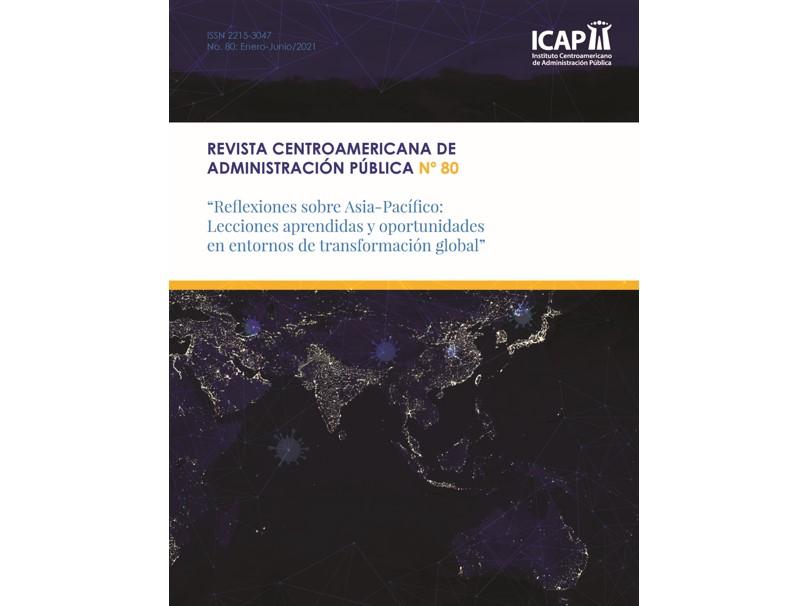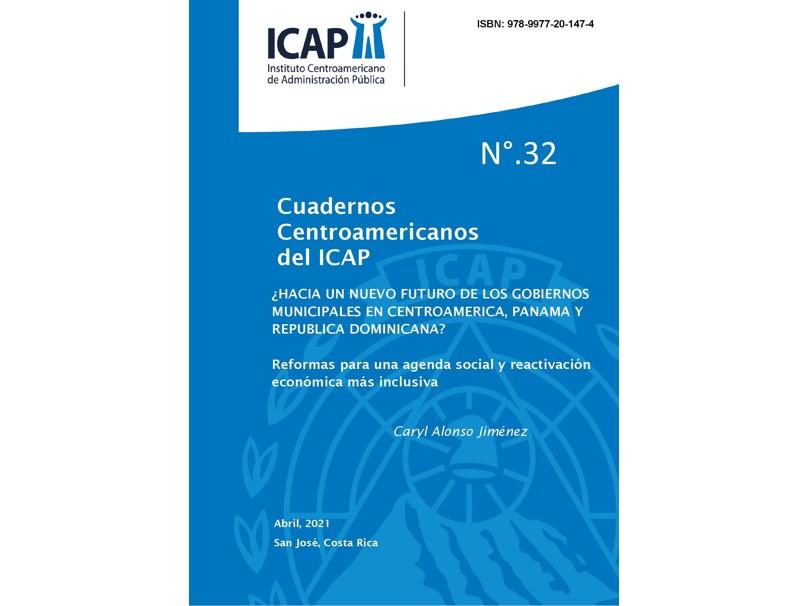Resources
Displaying 1 - 4 of 4
Central American Journal of Public Administration, No. 80 (January-June 2021)
| Spanish | Governance and public administration | Americas | Journal | IPAC/IAPC
This edition of the Central American Journal of Public Administration offers a series of reflections and lessons learned about the Asia-Pacific region in the current international context, characterized by the constant transformation of socio-political and economic structures. The geopolitical importance of the Asian region has permeated the mental structures of how to think about international relations between States, motivating the production…
Central American Journal of Public Administration, No. 80 (January-June 2021)
| Spanish | Governance and Public Institutions | Asia and the Pacific | Publication | ICAP
This edition of the Central American Journal of Public Administration offers a series of reflections and lessons learned about the Asia-Pacific region in the current international context, characterized by the constant transformation of socio-political and economic structures. The geopolitical importance of the Asian region has permeated the mental structures of how to think about international relations between States, motivating the production…
ICAP Central American Notebooks, No. 32 (April 2021)
| Spanish | Governance and Public Institutions | Americas | Publication | ICAP
In this issue, developed by Dr. Caryl Alonso Jiménez, it summarizes around 5 years of research and proposes a global approach to the issue of decentralization in the region, beginning with a historical review of the modernization processes of Central American States and how each implemented their own understanding of the concept.
In addition, the author continues with a two-level analysis; reviewing the tools, characteristics and indicators…
United Nations E-Government Survey 2018
| Arabic | Chinese | English | Russian | Spanish | Digital Government | Global | Publication | UN DESA/DPIDG
The 2018 UN E-Government Survey is published as the implementation of the 2030 Agenda for Sustainable Development Goals (SDGs) advances to its third year. Governments have the critical responsibility to pursue policies and measures to build resilience and assist those most affected by shocks in achieving SDGs. They must find ways to anticipate disasters and shocks and lower their impact. Digital technologies are increasingly being used by…
 欢迎来到联合国,您的世界!
欢迎来到联合国,您的世界!


